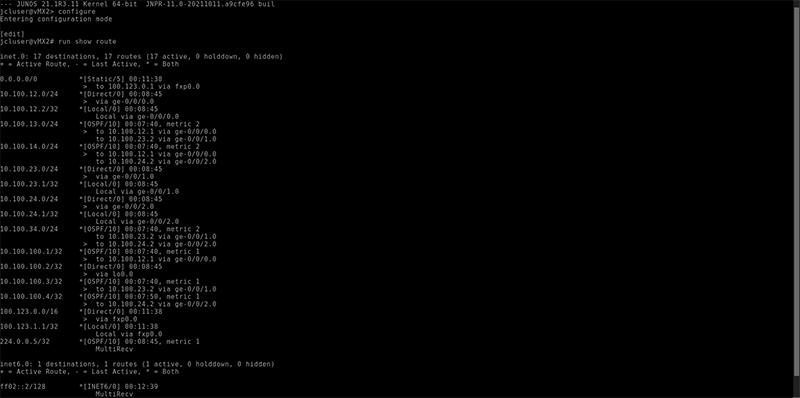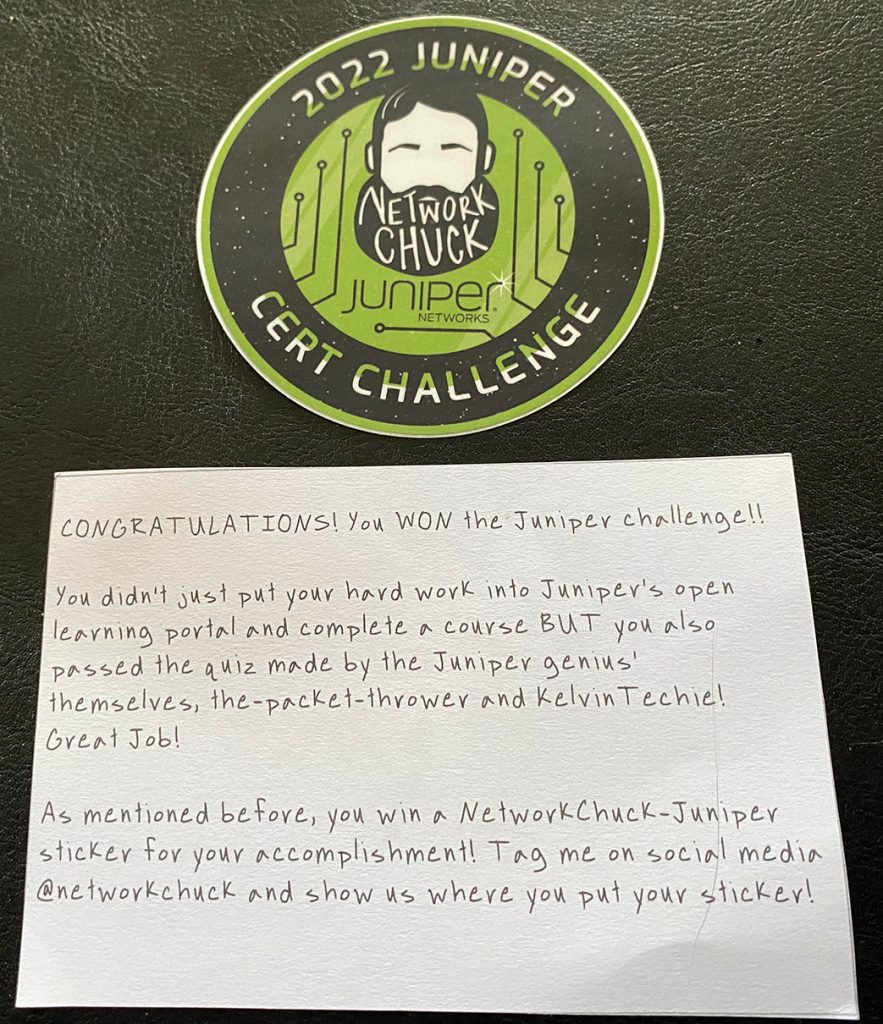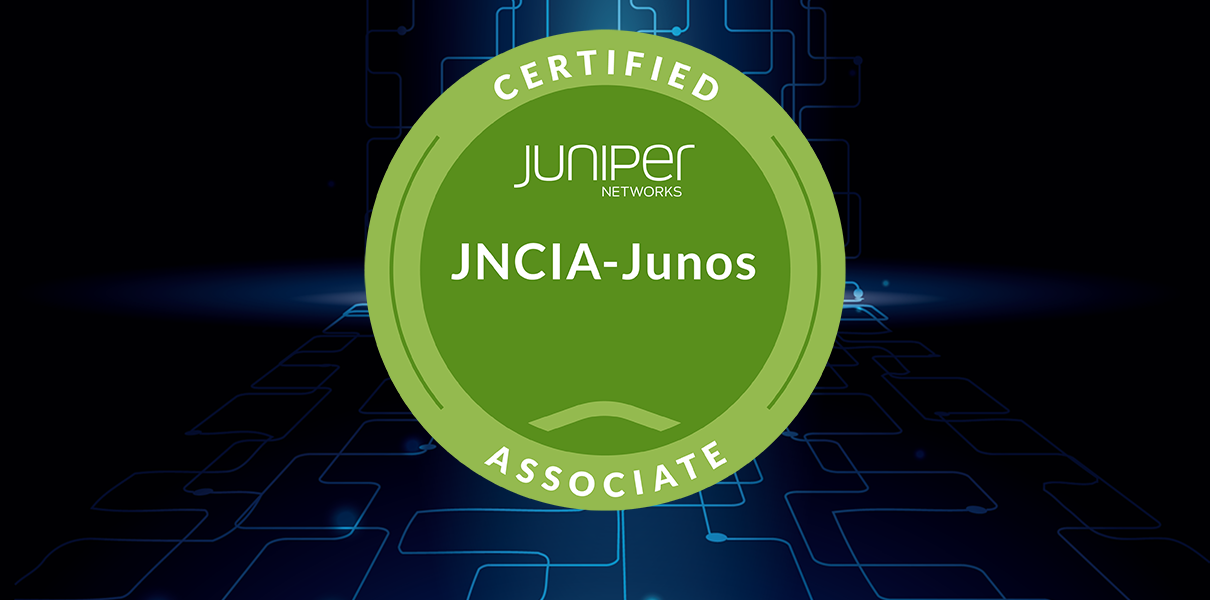One of my goals as I move forward in my career is to better understand Juniper equipment. Juniper has slowly been gobbling up market share from Cisco -especially in the service provider space- and I think it’s important to have a good foundational understanding of the equipment commonly used in the industry. As it so happens Chuck Keith (NetworkChuck) was running a 30-day Juniper certification challenge and Juniper themselves offer free training for JNCIA level certifications along with vouchers toward the cost of the test (at the time of writing this vouchers are for 75% off of the cost of the test).
Free training combined with a certification voucher made putting in the time for the JNCIA-JUNOS certification a no-brainer. The addition of a sticker from NetworkChuck wasn’t as enticing but I do think his challenge brought more attention to Juniper which is a plus.
What is JNCIA-Junos?
JNCIA-Junos stands for Juniper Network Certified Internetwork Associate – Junos. JNCIA/JNCDA are Juniper’s foundational level of certifications which certify that a practitioner holds a basic understanding of how the various aspects of Juniper equipment function and are configured. The JNCIA-Junos specifically certification focuses on how the Juniper operating system (Junos OS) is designed, managed and configured. It is the recommended starting point for anyone interested in Juniper Networks.
Study Materials for JNCIA-Junos
Thankfully many JNCIA study materials are offered by Juniper free of charge as mentioned previously. The main from of study available for JNCIA-Junos is the Open Learning – Junos, Associate (JNCIA-Junos) course. This video course features 19 modules which cover a broad range of Juniper administration and routing topics, from the fundamentals to security policies. There is also a practice exam to help gauge how ready you are for the voucher assessment test and the exam.

In addition to the JNCIA-Junos specific open learning course (and some high cost premium options offered by Juniper that I won’t cover here) the best resource for the JNCIA-Junos is vLabs. vLabs provides free access to typologies using vSRX and vMX instances which you can configure and manipulate. As most of you know, hands on experience can’t be beat when it comes to cementing your understanding of technical topics and Juniper offers this free of charge. Try out commands and concepts as you learn them in the open learning course so that you understand them not only conceptually but functionally on an actual Juniper system,

The third resource I recommend is Juniper’s Tech Library. This is where you find all of the documentation for anything Juniper. It is great for looking up command syntax/options when not in front of a Juniper box and equally as good for outlining the proper steps for various tasks such as Installing and Upgrading Firmware.
Test Taking Time!
After you have taken the open learning course and passed both the practice test and voucher assessment test it is time to book your exam through Pearson VUE. I completed my exam from home via their online proctoring setup (OnVUE) which was an easy experience. As outlined on the Juniper JNCIA-Junos Exam Objectives page the exam is 65 multiple choice questions and you have 90 minutes to complete it. It took me around 35 minutes to complete and I felt very well prepared after consuming all of the Juniper provided study resources. It is worth noting that I took exam version JN0-104. What is required for future exam versions may differ from what I have written in this article.
Was it Worth it?
If you work with Juniper gear or plan to do so I think JNCIA-Junos is worth it. Many people want to compare the CCNA to JNCIA-Junos but they are very different exams with different purposes. Whereas the CCNA covers a very broad set of networking topics with some Cisco command line thrown in the JNCIA-Junos focuses on getting you up to speed with Junos and assumes you already know networking basics. If you have your CCNA the JNCIA-Junos may go a long way to show that you aren’t a one trick pony. Many service providers are looking for those that have experience with both. For me it was about the knowledge more than the promise of career advancement so taking the time to learn the OS was worth it. The exam was low cost and didn’t take a ton of time to study for so I think anyone with an interest in Juniper should give it a shot.



